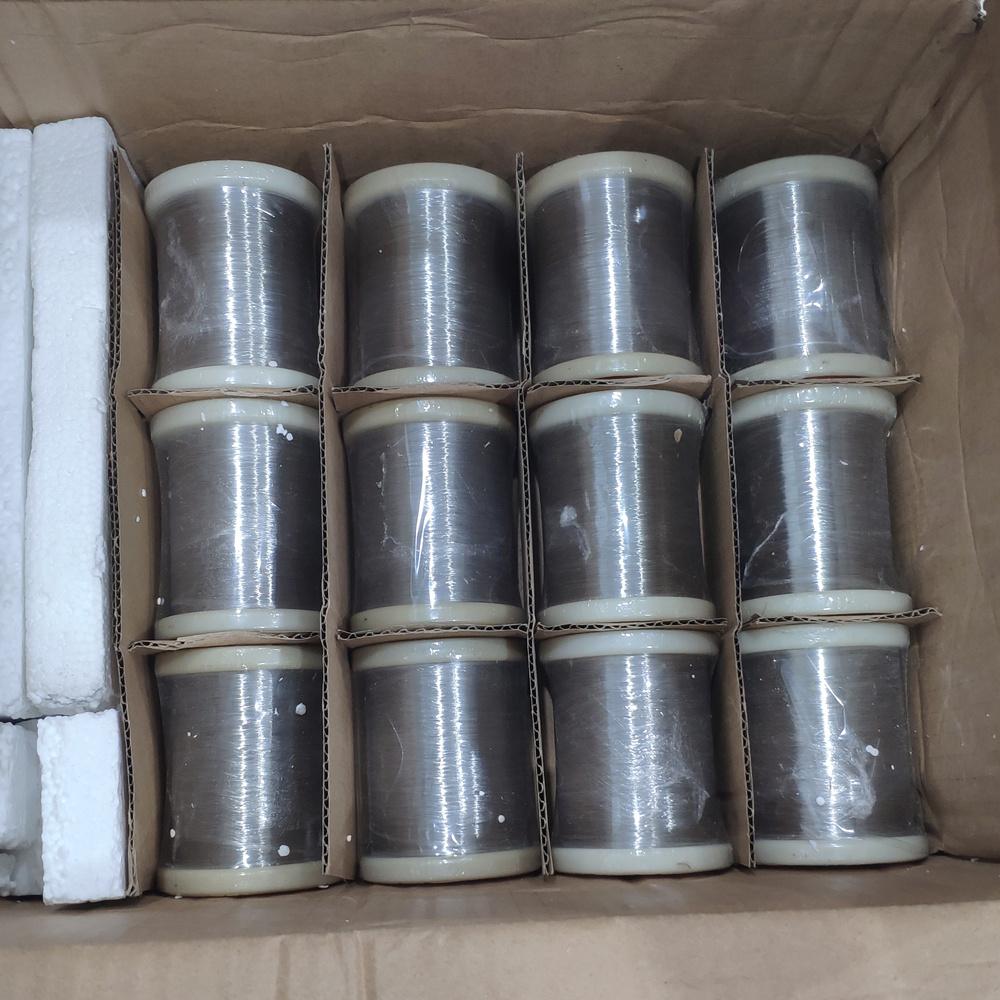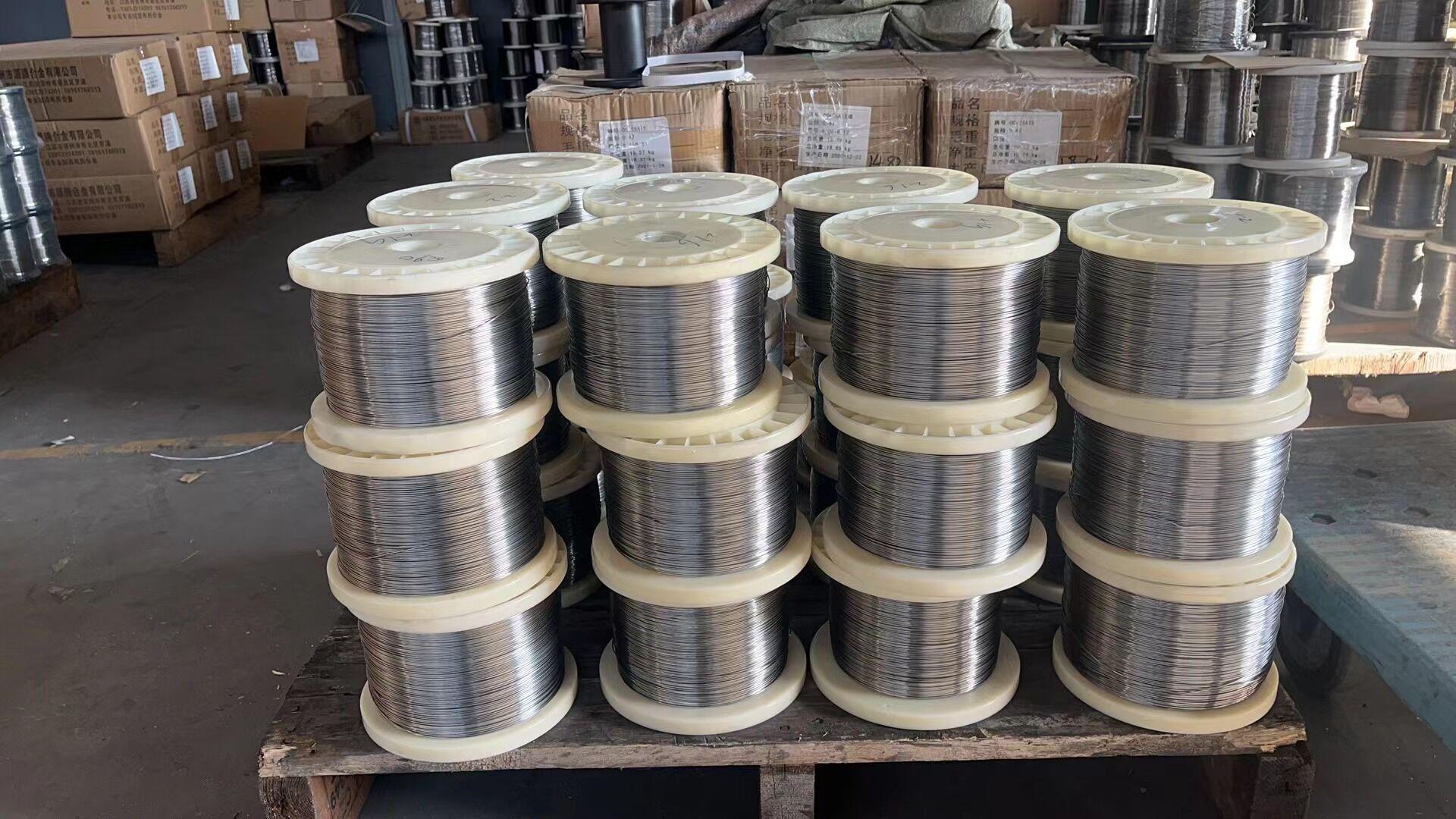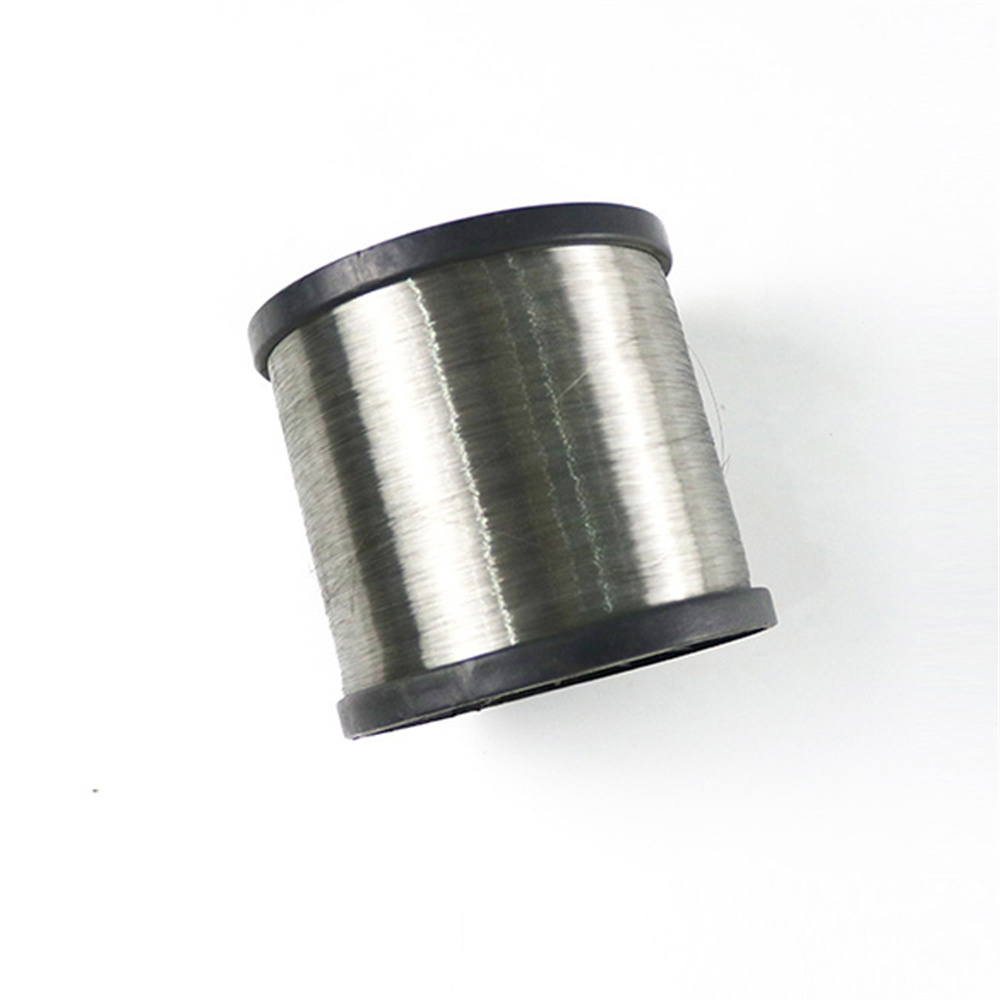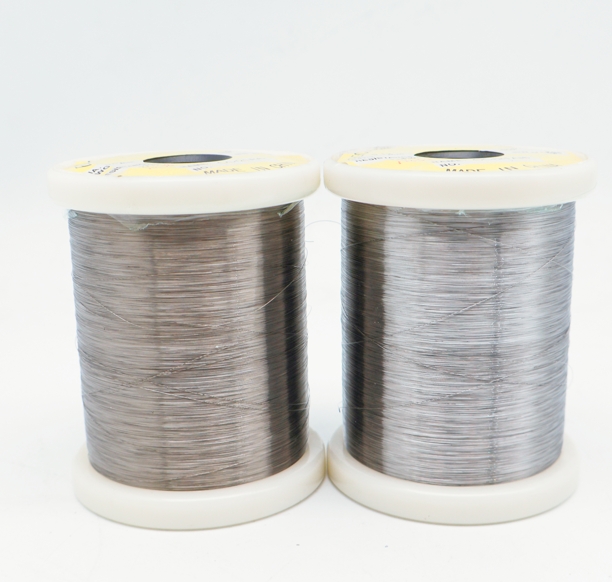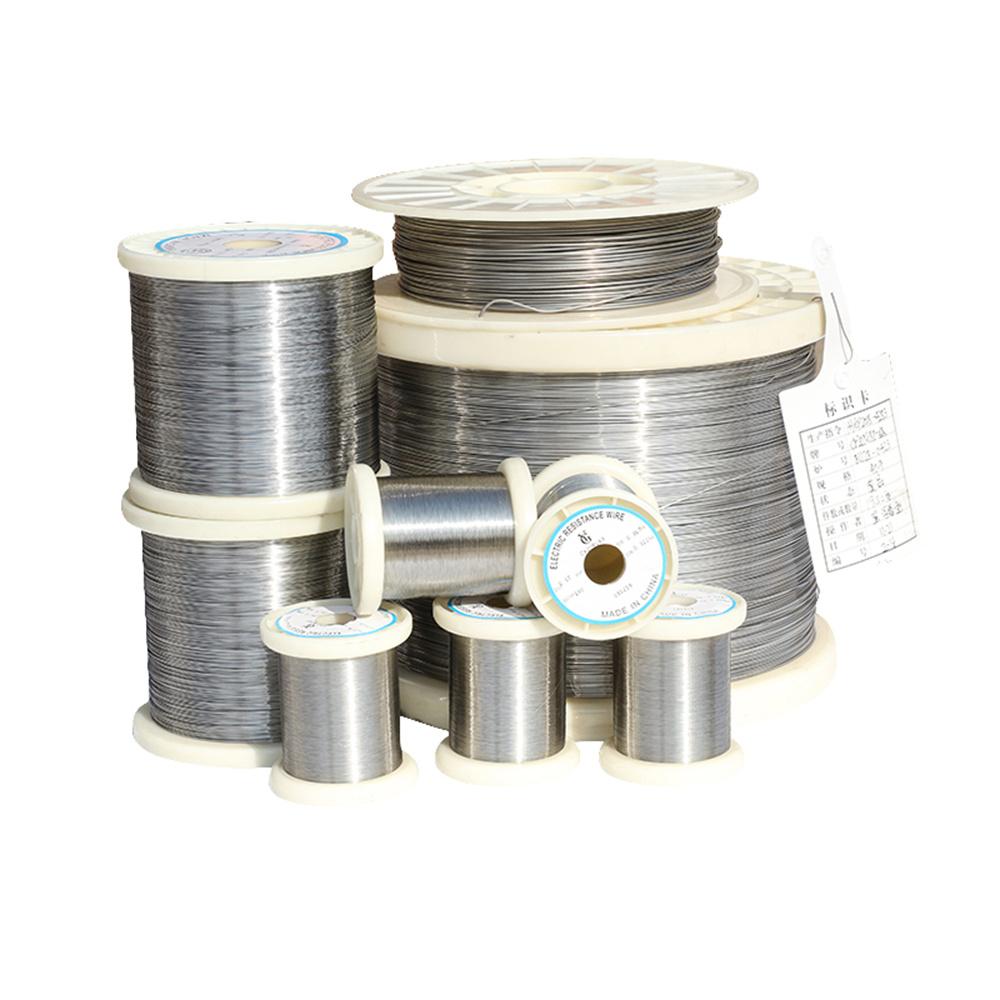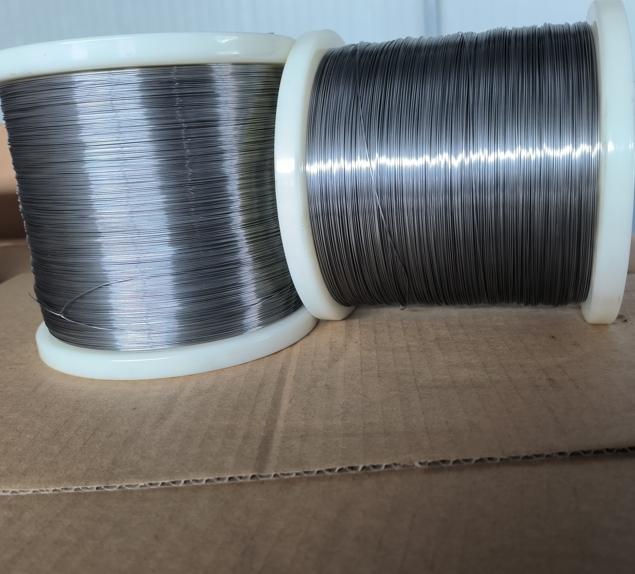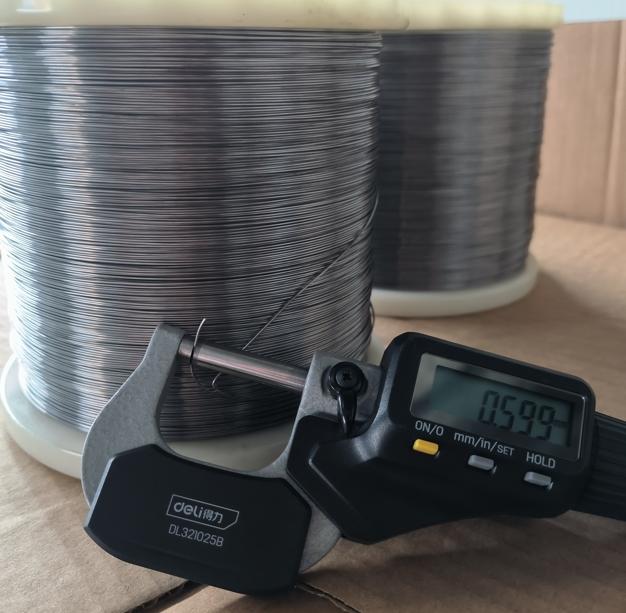
Our Biocompatible Pt92/W8 Platinum Tungsten Wire is a game-changer for medical devices, built to meet the strict demands of life-saving technology. This isn’t just any wire—it’s a high-performance alloy crafted for precision, durability, and safety in the human body. With 92% platinum and 8% tungsten, it’s designed to handle the toughest conditions while staying biocompatible, making it perfect for everything from pacemakers to neurostimulation devices. We’re proud to offer a product that combines cutting-edge materials science with real-world reliability, helping medical professionals and engineers push the boundaries of healthcare.
For more details, pls directly contact us.
Let’s break down what makes our Pt92/W8 wire so special. It’s a carefully balanced alloy of 92% platinum and 8% tungsten, giving it the best of both worlds: platinum’s excellent electrical conductivity and biocompatibility, plus tungsten’s strength and wear resistance. With a tensile strength of 50-70 ksi and conductivity around 15-20% IACS, this wire is tough enough for demanding applications yet gentle enough for long-term implantation. It’s got a high melting point—around 1770°C—so it holds up under intense sterilization processes like autoclaving. And it’s corrosion-resistant, standing up to bodily fluids like blood and saline without breaking down. Whether it’s guiding a catheter or delivering precise electrical signals, our Pt92/W8 wire is built to perform flawlessly in medical environments.
Platinum Tungsten Wire: Composition, Parameters, and Applications
| Category | Details |
|---|---|
| Composition | 90-95% Platinum (Pt), 5-10% Tungsten (W), meeting ASTM B684 standards |
| Parameters | |
| - Density (g/cm³) | 19.8-21.0 |
| - Tensile Strength (ksi) | 50-70 |
| - Electrical Conductivity (% IACS) | 15-20 |
| - Melting Point (°C) | ~1770 |
| - Corrosion Resistance | Excellent; resists oxidation, acids, and arc erosion |
| - Wear Resistance | High due to tungsten addition |
| - Temperature Range (°C) | Up to 1770 (stable in high-temperature environments) |
| - Diameter Range | Customizable, from ultra-fine (e.g., 0.01 mm) to thicker gauges (e.g., 1 mm) |
| Applications | |
| - Automotive | Spark plugs, ignition system contacts |
| - Aerospace | Relay contacts, avionics wiring |
| - Industrial | Circuit breakers, motor controls, high-frequency switching devices |
| - Renewable Energy | Solar panel connectors, wind turbine control systems |
| - Medical Devices | Precision contacts in diagnostic and surgical equipment |
| - Electronics | High-frequency circuits, IoT devices, telecommunications |
For more details, pls directly contact us.
In medical applications, biocompatibility is everything, and our Pt92/W8 wire nails it. It’s non-toxic, FDA-compliant, and resists corrosion from bodily fluids, ensuring it won’t cause adverse reactions. It also handles repeated sterilization without losing its properties, which is critical for reusable devices. In tests, our wire has shown zero degradation after 10,000 sterilization cycles, making it a top choice for implants like pacemaker electrodes and neurostimulation leads. Its high wear resistance means it can endure the mechanical stresses of catheter guidewires or stent components without fraying or failing. If you’re searching for biocompatible Pt92/W8 platinum tungsten wire for medical devices, you’re looking at a material that delivers unmatched reliability and safety for patients and practitioners alike.
The medical device industry is evolving fast, and our Pt92/W8 wire is right in step with the trends. The global market for medical devices is projected to grow at a 6-8% CAGR through 2030, driven by aging populations, rising chronic diseases, and advances in minimally invasive surgeries. Implantable devices like pacemakers and neuromodulators are in high demand, and materials that ensure long-term performance are critical. There’s also a push for personalized medicine, with devices requiring smaller, more precise components—our wire fits perfectly with its customizable diameters. Sustainability is another big driver; our wire’s durability reduces the need for frequent replacements, cutting down on medical waste. Regions like North America, Europe, and Asia-Pacific are leading the charge, with heavy investments in medtech innovation and regulatory frameworks favoring biocompatible materials.
When it comes to applications, our Pt92/W8 wire is incredibly versatile. In cardiology, it’s used in pacemaker and defibrillator electrodes, delivering reliable electrical signals for years. In neurology, it’s a go-to for neurostimulation leads, where its conductivity and durability support precise therapies for conditions like Parkinson’s. It’s also critical in catheter guidewires, helping surgeons navigate complex procedures with ease. Beyond implants, we’ve supplied it for diagnostic equipment like ECG sensors and even robotic surgery systems, where precision and reliability are non-negotiable. Emerging fields like bioelectronics and wearable health monitors are tapping into its potential too. We can tailor the wire to your exact specs—ultra-fine diameters for microelectrodes or thicker gauges for structural components, all with polished surfaces to ensure biocompatibility.
What makes our company stand out is our commitment to quality and innovation. We produce our Pt92/W8 wire to exceed industry standards, with rigorous testing for purity, biocompatibility, and mechanical performance. Our advanced drawing and polishing processes ensure ultra-smooth surfaces and precise diameters, reducing the risk of defects that could compromise patient safety. Compared to standard wires, our Pt92/W8 offers superior wear resistance and longevity, thanks to our proprietary alloy blending techniques. We’re also focused on sustainability, using recycled platinum to lower our environmental footprint without sacrificing quality. Our customers love our flexibility—rapid prototyping, custom packaging, and just-in-time delivery keep your projects on track. Our team of materials scientists is always ready to collaborate, whether you’re designing a new implant or optimizing a surgical tool.
Comparison Parameters Table
| Parameter | Pt92/W8 Platinum Tungsten Wire | Pure Platinum Wire | Stainless Steel 316L Wire |
|---|---|---|---|
| Composition | 92% Pt, 8% W | 100% Pt | 16-18% Cr, 10-14% Ni, 2-3% Mo |
| Density (g/cm³) | 20.0 | 21.45 | 8.0 |
| Tensile Strength (ksi) | 50-70 | 18-25 | 70-85 |
| Electrical Conductivity (% IACS) | 15-20 | 16-18 | 2-3 |
| Corrosion Resistance | Excellent; resists bodily fluids, sterilization | Excellent; slightly less durable | Moderate; prone to pitting |
| Biocompatibility | High; non-toxic, FDA-compliant | High; less wear-resistant | Moderate; not ideal for implants |
| Melting Point (°C) | ~1770 | 1768 | ~1370 |
| Cost Factor | High due to platinum | Very high | Low |
| Typical Applications | Pacemaker leads, catheter wires | Sensors, electrodes | Surgical tools, non-implants |
The advantages of our Pt92/W8 wire are clear. Its biocompatibility and corrosion resistance make it a standout for implants, often lasting three times longer than stainless steel in bodily fluid tests. The 8% tungsten gives it a strength edge over pure platinum, ensuring it can handle the mechanical stresses of medical devices without sacrificing conductivity. We’ve helped clients reduce device failure rates by 20% by switching to our wire for critical components like pacemaker leads. With trends leaning toward smaller, smarter medical devices, our wire is ready to support the future, from bioelectronic implants to advanced diagnostic tools. It’s a material that’s as reliable as it is cutting-edge.
For more details, pls directly contact us.



About Us:
Our 12,000㎡ factory is equipped with complete capabilities for research, production, testing, and packaging. We strictly adhere to ISO 9001 standards in our production processes, with an annual output of 1,200 tons. This ensures that we meet both quantity and quality demands. Furthermore, all products undergo rigorous simulated environment testing including high temperature, high pressure, and corrosion tests before being dispatched, ensuring they meet customer specifications.
For all our clients, we offer timely and multilingual after-sales support and technical consulting, helping you resolve any issues swiftly and efficiently.

Client Visits
Building Stronger Partnerships

We support all kinds of testing:


FAQs
-
What is the composition of Pt92/W8 platinum tungsten wire?
It’s a high-purity alloy with 92% platinum and 8% tungsten, designed for biocompatibility in medical applications. -
What are the key properties of Pt92/W8 wire?
It offers excellent corrosion resistance, high strength (50-70 ksi), electrical conductivity (15-20% IACS), and stability up to 1770°C. -
What medical devices use Pt92/W8 wire?
It’s used in pacemaker electrodes, catheter guidewires, and neurostimulation leads for its reliability and biocompatibility. -
How does Pt92/W8 wire perform in the human body?
It resists corrosion from bodily fluids, is non-toxic, and maintains performance under repeated sterilization. -
What industry trends are driving demand for Pt92/W8 wire?
Growth in minimally invasive surgeries, implantable devices, and personalized medicine is increasing its use in medical technology. -
Is Pt92/W8 wire suitable for high-precision medical applications?
Yes, its fine diameter control and high wear resistance make it ideal for delicate components like microelectrodes. -
How is Pt92/W8 wire processed for medical use?
It’s drawn to ultra-fine diameters, annealed for flexibility, and polished to ensure biocompatibility and smooth surfaces. -
What makes Pt92/W8 wire better than pure platinum for medical devices?
The 8% tungsten adds strength and durability while preserving platinum’s biocompatibility and corrosion resistance.
